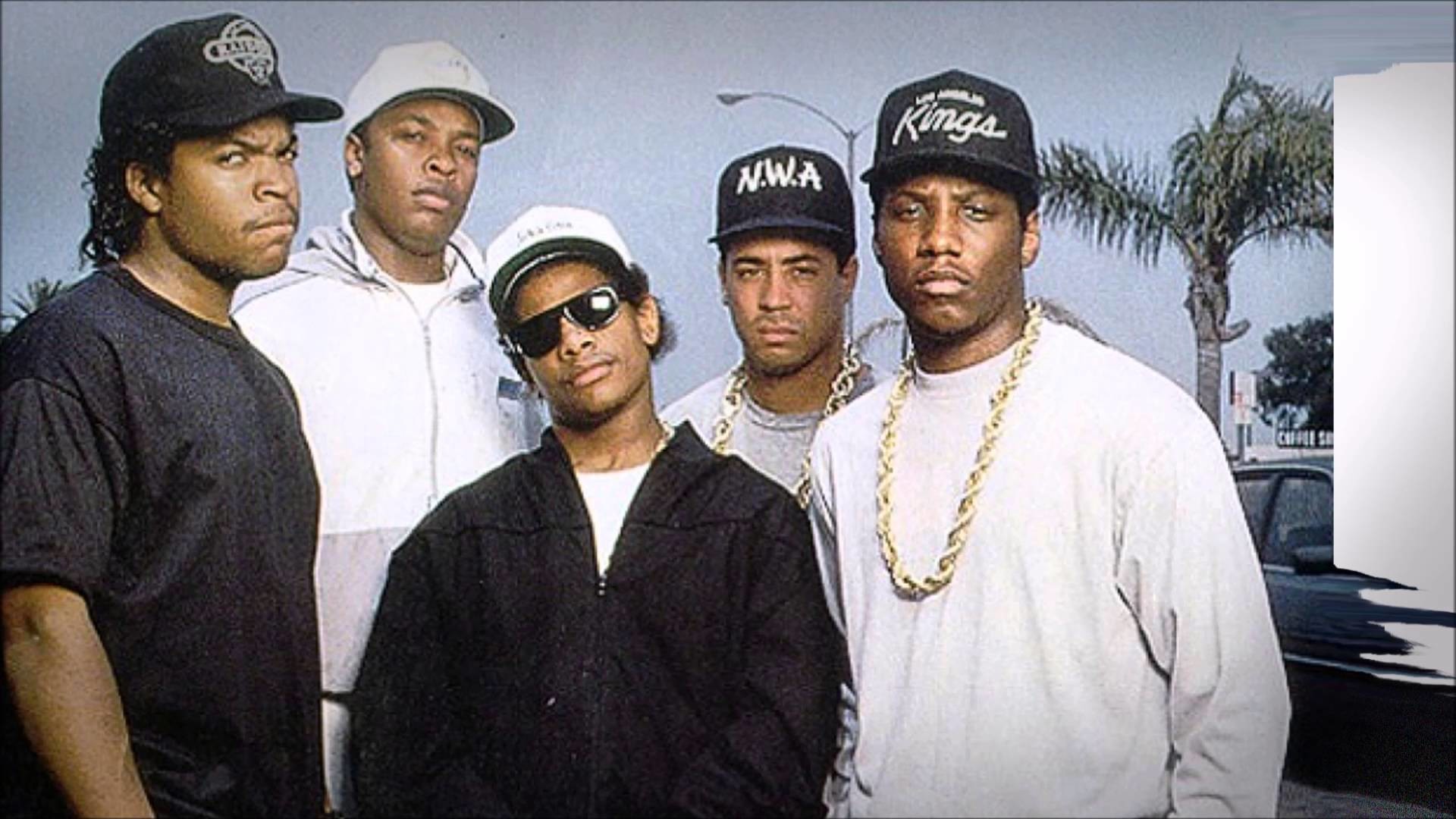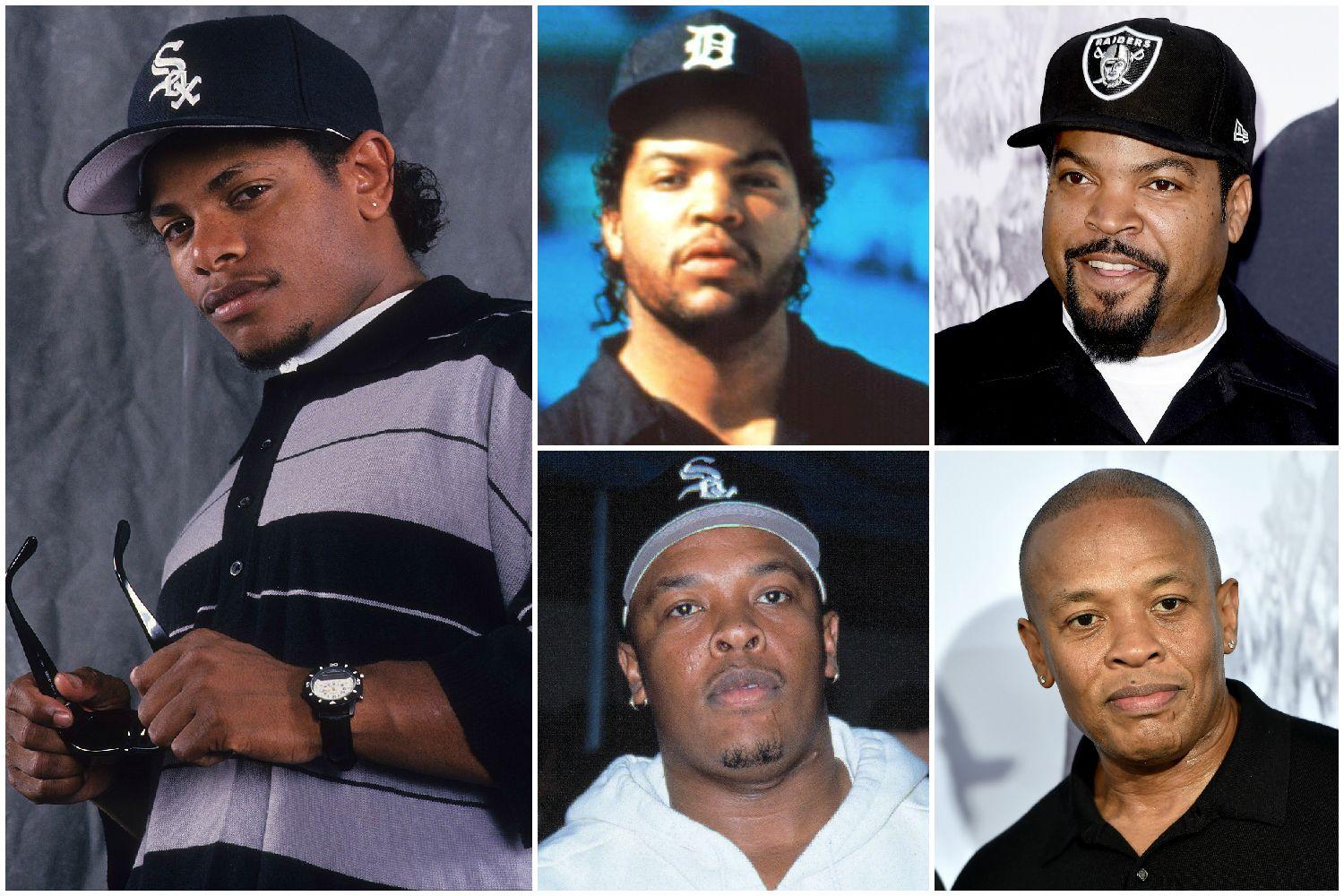Back in the late '80s, NWA members emerged as the voice of a generation, sparking a musical revolution that would forever change the landscape of hip-hop. This group wasn't just about making music; they were about telling stories, breaking barriers, and giving a voice to the voiceless. If you're diving into the world of rap history, you can't miss out on understanding the impact these legendary artists had on the industry and beyond.
When we talk about NWA members, we're not just talking about a group of musicians. We're talking about pioneers who dared to challenge the status quo. Their raw lyrics, unmatched beats, and unfiltered storytelling made them one of the most influential groups in music history. They weren't just making songs—they were creating a movement.
So, why does knowing about NWA members matter today? Because their legacy continues to influence modern rap, inspire new artists, and resonate with fans across generations. Whether you're a die-hard fan or just curious about the roots of hip-hop, this article will take you on a deep dive into who these members were, what they achieved, and how their impact still echoes in the music world today. Let's get into it!
Read also:Chinese 1985 Animal Your Zodiac Guide To The Year Of The Ox
Table of Contents
- Biography of NWA Members
- The Origins of NWA
- Who Are the NWA Members?
- NWA's Breakthrough Moment
- The Cultural Impact of NWA
- NWA's Iconic Music
- Controversies Surrounding the Group
- The Legacy of NWA Members
- How NWA Influenced Modern Rap
- What's Next for the NWA Legacy?
Biography of NWA Members
Getting to Know the Legends
Before we dive into their music and influence, let's take a moment to understand who these NWA members really were. They weren't just artists; they were individuals with unique stories, struggles, and triumphs that shaped their music. Below is a quick rundown of the key members:
| Name | Birth Name | Date of Birth | Role in NWA |
|---|---|---|---|
| Dr. Dre | Curtis James Jackson III | February 18, 1965 | Producer, DJ, Rapper |
| Ice Cube | O'Shea Jackson | June 15, 1969 | Rapper, Songwriter |
| Eazy-E | Eric Lynn Wright | September 7, 1964 | Rapper, Founder of Ruthless Records |
| M.C. Ren | Lorenzo Patterson | August 18, 1968 | Rapper, Songwriter |
| DJ Yella | Antoine Carraby | August 9, 1967 | DJ, Producer |
These guys came from different walks of life, but they all shared a common goal: to create music that spoke to the reality of life in the streets. Their backgrounds, struggles, and experiences became the foundation of their art, setting the stage for a musical revolution that would change the world.
The Origins of NWA
How It All Began
Back in the early '80s, the hip-hop scene in Compton, California, was buzzing with energy. It was here that Eazy-E, Dr. Dre, and Ice Cube crossed paths, each bringing something unique to the table. Eazy-E, the businessman with a knack for spotting talent, teamed up with Dr. Dre, the musical genius, and Ice Cube, the lyrical powerhouse. Together, they formed NWA—or Niggaz Wit Attitudes.
At the time, the music industry was dominated by polished, radio-friendly tracks. But NWA wasn't interested in fitting in. They wanted to create something raw, something real, something that reflected the harsh realities of life in South Central Los Angeles. And boy, did they deliver.
Who Are the NWA Members?
The Core of the Group
While NWA had a rotating lineup over the years, the core members remained the same. Let's break them down:
- Dr. Dre: The mastermind behind the sound, Dr. Dre brought a unique production style that set NWA apart from the rest.
- Ice Cube: Known for his sharp lyrics and unapologetic delivery, Ice Cube became one of the most influential rappers of all time.
- Eazy-E: The face of the group, Eazy-E's charisma and energy made him a natural leader.
- M.C. Ren: Often overshadowed but equally talented, M.C. Ren contributed heavily to the group's lyrical content.
- DJ Yella: Behind the decks, DJ Yella provided the beats that kept the party going.
Each member brought something special to the table, and together, they created magic that would resonate for decades.
Read also:Seventh Street Burger Calories A Deep Dive Into Your Favorite Burgers Nutrition
NWA's Breakthrough Moment
"F*ck tha Police" and Beyond
If there's one song that defined NWA's legacy, it's "F*ck tha Police." Released in 1988, this track became an anthem for resistance against police brutality and systemic oppression. It wasn't just a song—it was a statement. The track sparked controversy, landed the group in hot water with law enforcement, and cemented their place in music history.
But it wasn't just "F*ck tha Police" that made NWA famous. Albums like "Straight Outta Compton" and "Efil4zaggin" (Niggaz4Life spelled backward) became staples in the rap world, showcasing the group's unmatched talent and fearless approach to storytelling.
The Cultural Impact of NWA
Changing the Game
NWA didn't just make music—they changed the game. Their unfiltered lyrics and unapologetic stance on social issues opened the door for countless artists who followed in their footsteps. They gave voice to the voiceless and shone a light on issues that were often ignored by mainstream media.
But their impact went beyond music. NWA became a symbol of empowerment, inspiring fans around the world to stand up for their rights and demand change. Their legacy continues to inspire new generations of artists and activists alike.
NWA's Iconic Music
The Songs That Defined a Generation
When you think of NWA, you think of their music. Songs like "Straight Outta Compton," "Express Yourself," and "Gangsta Gangsta" became instant classics, resonating with fans across the globe. But what made their music so special?
- Raw Lyrics: NWA's lyrics were unfiltered, honest, and powerful, reflecting the realities of life in the streets.
- Innovative Beats: Dr. Dre's production style set a new standard for hip-hop, influencing countless producers in the years that followed.
- Social Commentary: NWA used their platform to address issues like police brutality, racism, and poverty, making their music more than just entertainment.
These elements combined to create a sound that was both groundbreaking and timeless, ensuring NWA's place in music history.
Controversies Surrounding the Group
The Dark Side of Fame
With great power comes great controversy, and NWA was no exception. The group faced criticism from all sides, from law enforcement to conservative groups, who accused them of promoting violence and disrespecting authority. But the controversies didn't stop there.
Internal conflicts eventually led to the group's breakup, with Ice Cube leaving in 1989 and tensions between Eazy-E and Dr. Dre coming to a head. Despite these challenges, the members went on to have successful solo careers, proving that their talent couldn't be contained.
The Legacy of NWA Members
Carrying the Torch
Even after the group disbanded, the legacy of NWA members continued to grow. Dr. Dre became one of the most successful producers in music history, working with artists like Snoop Dogg, Eminem, and Kendrick Lamar. Ice Cube established himself as a rap icon and Hollywood star, starring in films like "Friday" and "Barbershop."
And while Eazy-E's life was tragically cut short by AIDS in 1995, his influence lives on through his music and the legacy he left behind. M.C. Ren and DJ Yella also continued to make music, ensuring that the spirit of NWA lived on.
How NWA Influenced Modern Rap
Shaping the Future
It's impossible to talk about modern rap without acknowledging the influence of NWA members. Their fearless approach to storytelling, innovative production style, and commitment to authenticity paved the way for countless artists who followed in their footsteps.
Today, you can hear the echoes of NWA in the music of artists like Kendrick Lamar, J. Cole, and Cardi B. They may not be making music exactly like NWA, but the spirit of resistance, empowerment, and authenticity that NWA embodied continues to inspire new generations of artists.
What's Next for the NWA Legacy?
Keeping the Flame Alive
While the original members may have gone their separate ways, the legacy of NWA continues to thrive. Movies like "Straight Outta Compton" have introduced their story to new audiences, ensuring that their impact is felt by future generations. And with the ongoing fight for social justice and equality, the messages in NWA's music remain as relevant today as they were in the '80s.
So, what's next for the NWA legacy? As long as there are artists willing to speak truth to power and tell stories that matter, the spirit of NWA will live on. And that's something worth celebrating.
Conclusion
In the end, NWA members weren't just a group—they were a movement. They changed the game, broke barriers, and gave a voice to the voiceless. Their music, their stories, and their legacy continue to inspire fans and artists around the world.
So, whether you're a long-time fan or just discovering their music for the first time, take a moment to appreciate the impact NWA had on the world. And if you're feeling inspired, why not leave a comment, share this article, or dive deeper into their discography? After all, the best way to honor their legacy is to keep the conversation going.

